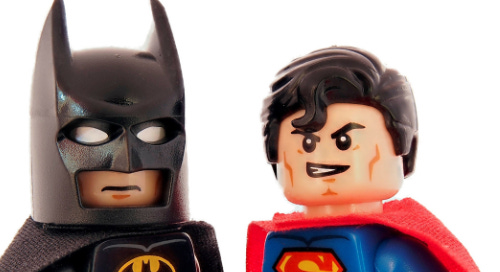Brecht’s aphorism from the Life of Galileo, ‘Unhappy the land that is in need of heroes’, gestures at familiar realities: the cult of heroes is manipulated by authority to create obedience; and that cult invariably covers up the vices and flaws of some all too human figures in order to create those heroes. The secularised will doubtless carry such suspicions over to our saints, but Brecht’s justified cynicism about national heroes is a reminder that the recognition of saints is inseparable from the supernatural status of both saint and the process of canonisation. Canonisation proclaims that a Catholic is holy (sanctus). The saint is primarily a model of theōsis or divinisation, a model of being close to God in heaven, and thus enjoying their supernatural end, as evidenced in part by the performance of a miracle through their intercession.
Nevertheless, human beings have always taken other human beings as models. In part, that’s because we are social animals with hierarchies and authority figures within those hierarchies. It’s worth pausing for a little while here and thinking about C.S. Lewis’s conceit of ‘talking beasts’ in his Narnia books: the granting of the powers of speech and reason to animals other than social apes like ourselves. Although the philosopher Ludwig Wittgenstein boldly proclaimed that, ‘If a lion could speak, we would not be able to understand him’, there’s no reason to believe that this is completely true. As a social mammal, lions and apes share quite a lot of common concerns at least as far as our natural purposes in life are concerned. Certainly, the lion would be mystified by much of our talk, and we might also struggle to appreciate the finer joys of hunting raw meat. But anyone who has kept a dog or cat as a pet would expect some meeting of minds between a talking lion and a talking ape. Compare this with, say, a talking crocodile, a creature which does not care for its young and which does not establish social relationships. Whatever understanding might be obtained with such a creature, it would be considerably less than we might expect with a talking lion or similar social mammal.
So one of the reasons why it’s important to hold up living and dead human beings as models is that we, as social animals, have a natural tendency to become attached to other humans and to follow them. We may also be attached to ideas and theories and symbols, but an attachment to human beings remains at least as important if not more important than an attachment to these relative abstractions.
Another reason why human beings as models are irreplaceable by more abstract values is that there is something not easily articulated about the virtues of a successful human being. For example, although both Plato and Aristotle think that good laws play a role in passing on the good life to others, both also think that good people are sources of authority which cannot simply be replaced by laws. Plato is perhaps clearest about this in his dialogue the Statesman when he argues that:
[T]he best thing is not that the laws be in power, but that the man who is wise and of kingly nature be ruler… Because law could never, by determining exactly what is noblest and most just for one and all, enjoin upon them that which is best. [294a-b]
Though laws may be a good alternative, there is a loss in the absence of the living wisdom of the wise person. By holding up a wise person as a model for our lives, we gain an insight into that virtue of wisdom when it goes beyond what can be articulated in general principles.
Whatever Brecht’s suspicion of the hero, modern societies lurch from his cynicism to blind, emotional adoration. The ‘fan’ is a character which it is difficult to envisage in anything other than the modern world, with its curious mixture of obsessive erotic attachment, triviality of object, and dependence on a crafted representation in the mass media. Scotland’s heroes -at least according to the Hall of Heroes in the Wallace Monument- are a mixture of the known, forgotten and unsuitable: Robert the Bruce, George Buchanan, John Knox, Allan Ramsay, Robert Burns, Robert Tannahill, Adam Smith, James Watt, Sir Walter Scott, William Murdoch, Sir David Brewster, Thomas Carlyle, Hugh Miller, Thomas Chalmers, David Livingstone, W. E. Gladstone, Maggie Keswick Jencks and Mary Slessor.
What can we conclude from all this? Modern Scotland, just like all societies, needs its human models. But there is something about modern societies that distrusts such heroes even while it craves them and creates totally unsuitable figures for admiration. Perhaps only the truly sacred can shine through such confusion.
By Stephen Watt



